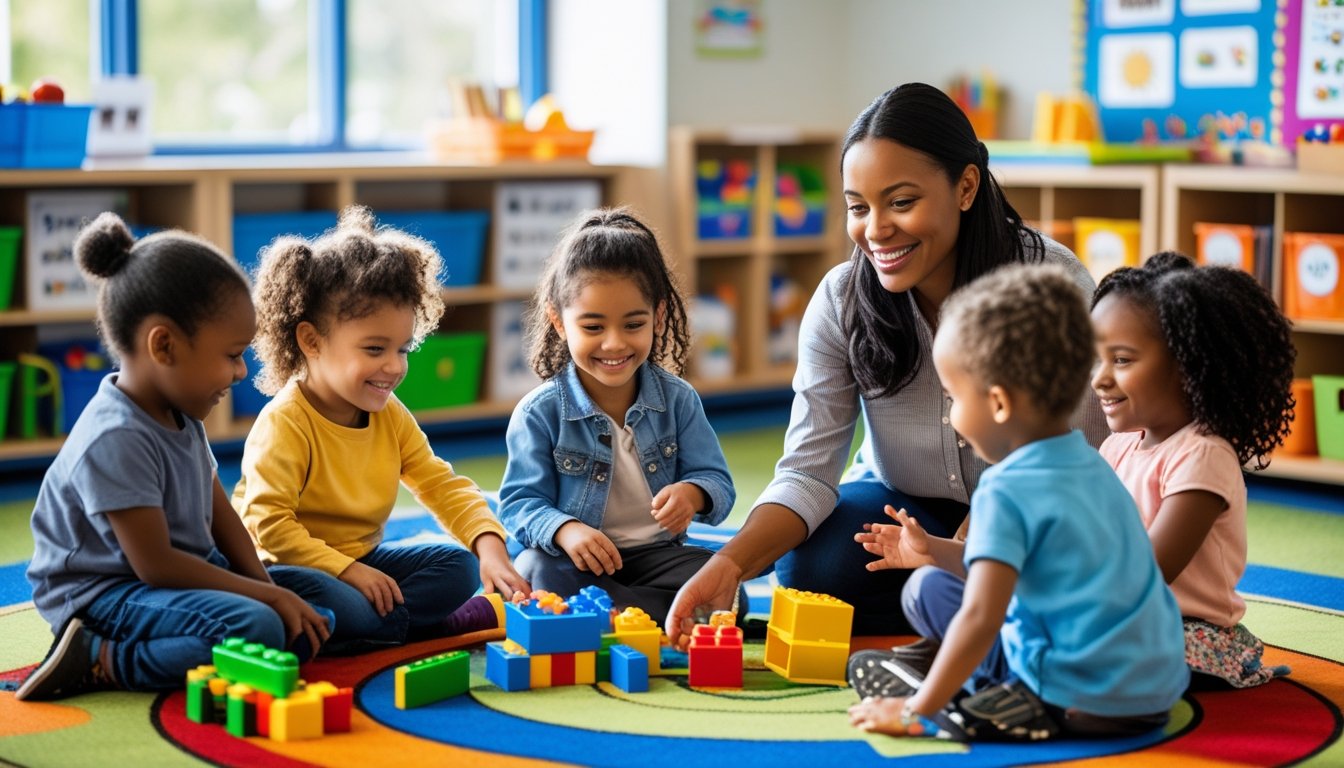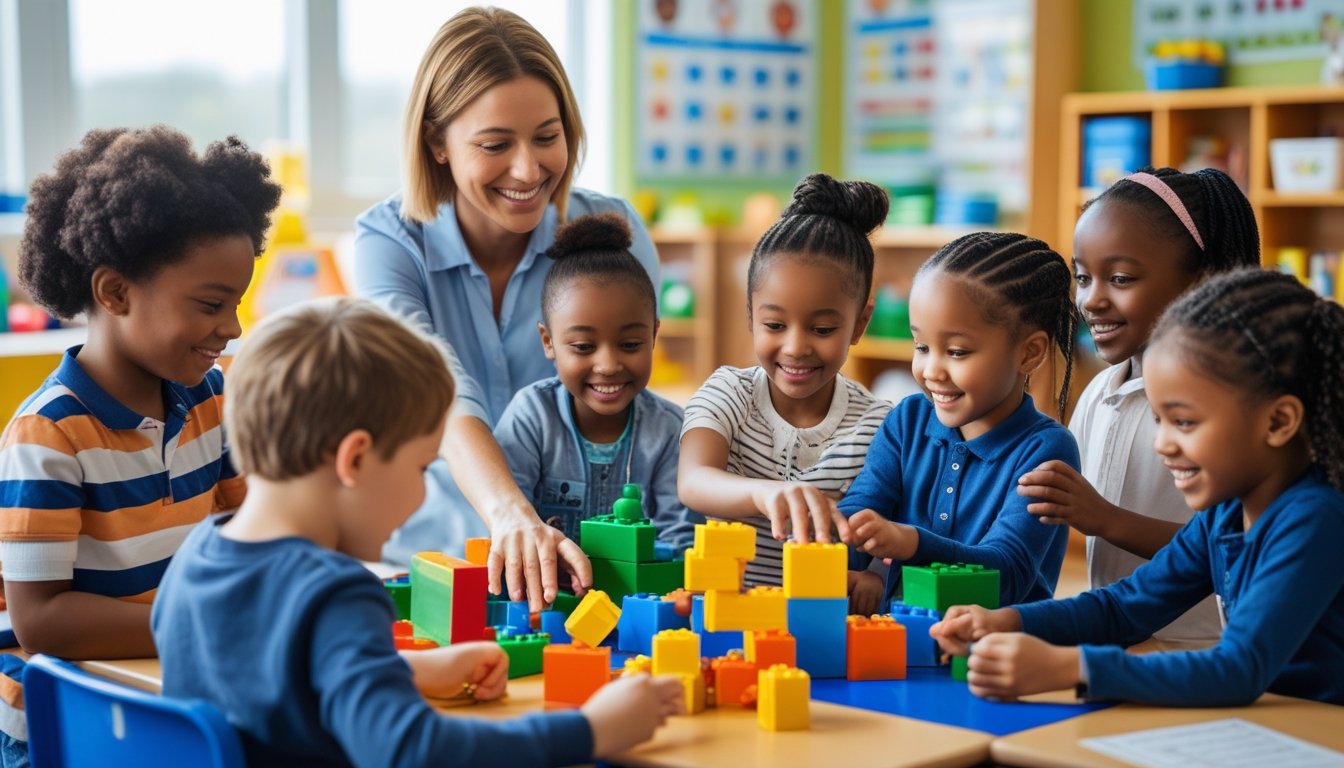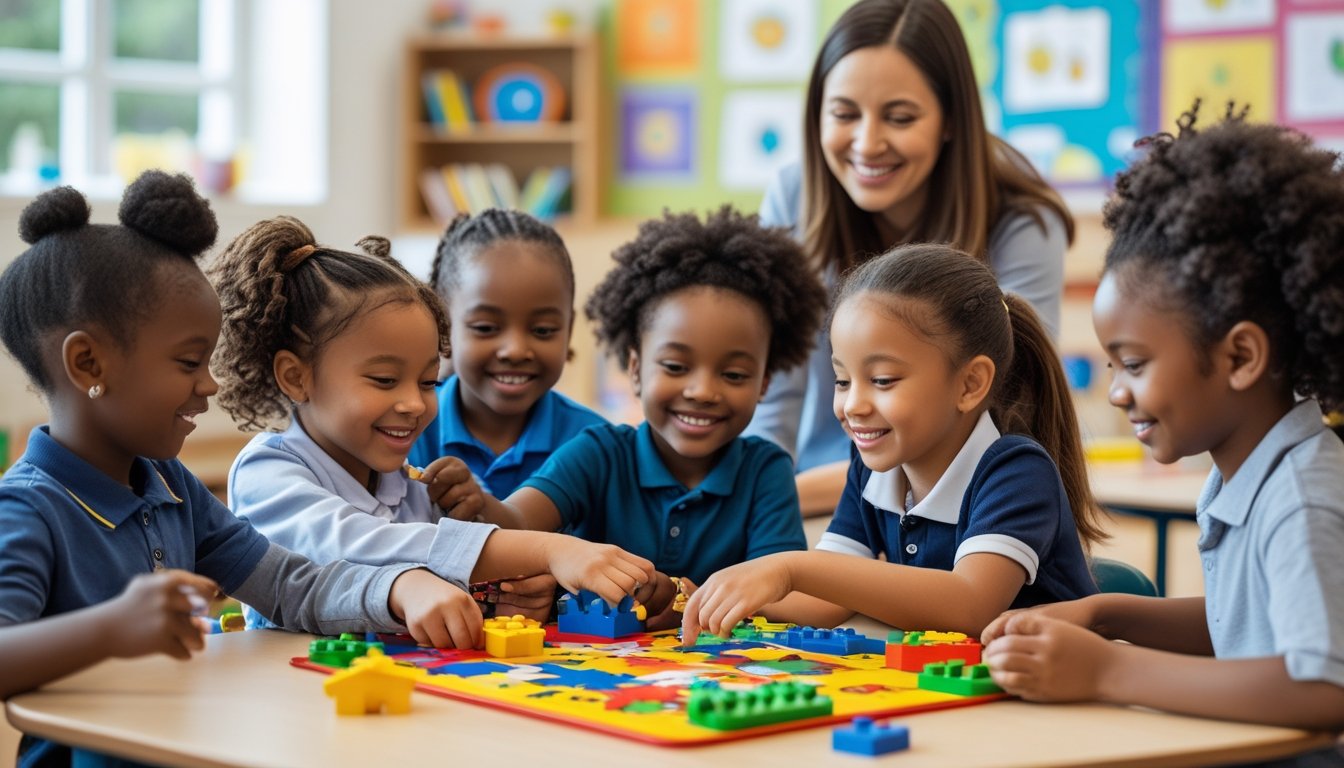Late updated: 28 Jul 2025 13:07
Written by:
Strategies For Encouraging Children's Social Skills: Practical Tips for Parents and Educators
Fostering children's social skills is essential for their development and future success. As parents and educators, we face the challenge of guiding children through social interactions. The secret lies in creating supportive environments where they can learn and practice key skills such as empathy, communication, and collaboration.

Our journey in assisting children involves integrating everyday opportunities with structured activities. From family discussions to organised playdates, blending these experiences enriches their learning. As we explore various strategies, we find that modelling positive social interactions is key to setting the right example.
In this article, we delve into core strategies and practical approaches that can be seamlessly incorporated into daily life. Whether at home or in educational settings, these insights will serve as a helpful guide.
Key Takeaways
- Create supportive environments for skill practice.
- Integrate everyday moments with structured activities.
- Model positive interactions as foundational examples.
Core Strategies for Encouraging Children's Social Skills

Fostering social skills in children is essential for their overall development. By focusing on positive interactions, structured activities, empathy, and emotional awareness, we can create a supportive environment for growth.
Modelling Positive Interactions
One fundamental way to encourage social skills is by modelling positive interactions ourselves. Children often mimic the behaviours they observe, making it crucial for us to demonstrate respectful communication. We should actively show courteous behaviour like saying "please" and "thank you", maintaining eye contact, and showing genuine interest when conversing.
Having open discussions about various social situations can reinforce these learnings. This builds a foundation for children to understand and replicate these behaviours with peers and adults. Consistent exposure to these interactions helps instil these habits in daily life.
Structured Social Skills Activities
Structured activities such as role-playing games or group tasks can be instrumental in building social skills. These activities provide children with safe environments to practise different scenarios. Role-playing encourages them to navigate social settings, helping develop conflict resolution and compromise abilities.
Group tasks also play a pivotal role by promoting teamwork and collaboration. They learn how to listen to others, share ideas, and consider different perspectives. In addition, feedback during these activities can gently guide them towards more effective social interactions.
Promoting Empathy and Emotional Awareness
Developing empathy and emotional awareness in children is vital for nurturing their social capacity. We can encourage empathy by discussing different emotions and their potential causes with children. Teaching them to recognise feelings in themselves and others fosters compassionate and supportive social interactions.
Interactive activities like storytelling or reading books that highlight emotional themes can also be beneficial. These can initiate conversations that lead children to consider how they would feel in others' shoes. By continuously engaging in these practices, children become more attuned to emotions, enhancing their ability to connect with others on a deeper level.
Practical Approaches and Everyday Opportunities

In fostering social skills in children, there are practical and everyday strategies we can employ. These include creating environments where all children feel welcome, encouraging play that requires cooperation, and leveraging storytelling to teach key social concepts.
Creating Inclusive Play Environments
We should consider various ways to make play settings more inclusive. A diverse range of activities can cater to different ability levels, ensuring every child can participate. This may involve adjustable rules or varied materials that allow children to engage based on their preferences and abilities. Additionally, fostering a welcoming atmosphere is crucial. Children should be encouraged to invite peers who might otherwise feel left out. Through this, they can develop empathy and learn the value of diverse friendships. Such environments teach children how to include others, nurturing a sense of belonging for everyone involved.
Encouraging Cooperative Play and Teamwork
Cooperative play is pivotal for developing teamwork skills. Organised group activities, like building a fort or completing a puzzle, require communication and coordination. In these scenarios, children learn to negotiate roles, listen to peers, and solve problems collectively. Simple games, such as playground tag, also offer opportunities for organic teamwork and strategy discussions. By encouraging children to participate in team-based games or projects, we guide them in understanding the importance of collaboration and effective communication. Additionally, celebrating group achievements reinforces the idea that working together often leads to success.
Utilising Storytelling and Role-Playing
Storytelling and role-playing are effective tools for teaching social skills. By engaging in these activities, children can explore different perspectives and emotions. We might, for example, use storybooks that feature diverse characters and scenarios to spark conversations about feelings and interactions. Role-playing exercises allow children to practice empathy by stepping into various roles, such as pretending to be a doctor, patient, or teacher. This practice helps them learn respectful dialogue and perspective-taking. Discussing stories and their characters' decisions also encourages critical thinking around social situations. Through these creative activities, children gain insights into navigating real-world interactions successfully.
Frequently Asked Questions
Understanding how to nurture children's social skills involves utilising effective techniques, particularly for diverse needs such as autism. Educators play a significant role, and certain activities cater specifically to young children. Here, we address common questions on enhancing social abilities in children and why these skills are vital.
What are effective techniques for improving social interaction among peers?
Role-playing and group activities are practical methods to enhance peer interaction. By simulating social scenarios, children can practice communication and empathy. Encouraging cooperative games also helps develop the ability to work and interact with others, boosting confidence in social environments.
What approaches aid in fostering social skills in children with autism?
Structured routines and predictable environments are beneficial. Social stories and visual supports can help in understanding social cues and expectations. Additionally, one-on-one coaching and peer-buddy systems provide personalised guidance, reinforcing positive interactions and communication skills.
How can educators contribute to the development of students' social abilities?
Educators can create an inclusive classroom environment by incorporating collaborative projects and group discussions. They can model positive social behaviours and provide constructive feedback. Organising social skills workshops and peer mentoring encourages students to engage and learn from each other.
What are key social competencies children should learn?
Children should learn to communicate effectively, manage their emotions, and show empathy. Conflict resolution, sharing, and cooperation are other essential competencies. These skills not only foster individual growth but also help children to build and maintain healthy relationships with peers.
What types of social development activities are suitable for children aged 3 to 5?
At this age, interactive play dates and storytelling sessions foster social development. Simple role-playing games and cooperative crafts encourage cooperation and positive interaction. Singing and dancing activities also enhance group participation, making social learning enjoyable and engaging.
Why is the acquisition of social skills critical in child development?
Social skills are foundational for building relationships and experiencing success in various life stages. They contribute significantly to emotional wellbeing and academic performance. Children who learn these skills early are more likely to navigate social challenges effectively and become well-adjusted adults.
